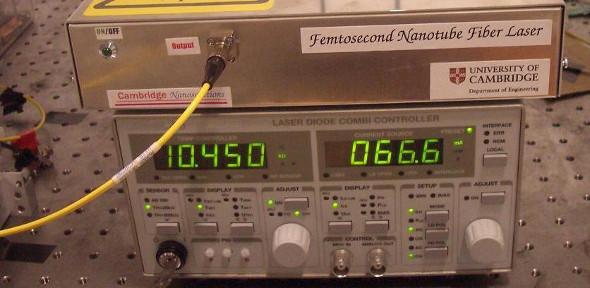
The team's work in nanotube based polymer optoelectronics will seek to combine polymers and carbon nanotubes. This will have the benefit of reduced cost and greater flexibility of use over conventional inorganic semiconductors. The work is expected to have practical applications in optical communications, bio-medical instruments, chemical analysis, time resolved spectroscopy, electro-optical sampling, microscopy and surgery.
Science may well hold the key to solving many of the challenges the world is facing but that will not happen if we do not invest in people and ideas. With the Brian Mercer Awards we are backing up our words with actions.
Sir Peter Williams, Vice-President of the Royal Society
The £250,000 Prize was presented at the annual Royal Society ‘From labs to riches’ event. The awards are given to encourage innovation in science and technology and promote its commercial application.
Dr Ferrari said "Nanotechnology is one of the most exciting areas in modern science. The potential of substances such as carbon nanotubes is massive. The UK has to ensure that it invests in the technology now so that we are not left behind. The ability to manipulate the structure and composition at the nano-scale opens huge opportunities to create materials with superior performance for new products and devices. The introduction of a wide range of new low cost materials, encompassing polymers and nanostructures, including nanotubes and nanowires, is set to have a disruptive impact on current products which use conventional inorganic semiconductors, not only because of cost/performance advantages, but also because they can be manufactured in more flexible ways, suitable for a growing range of applications."

